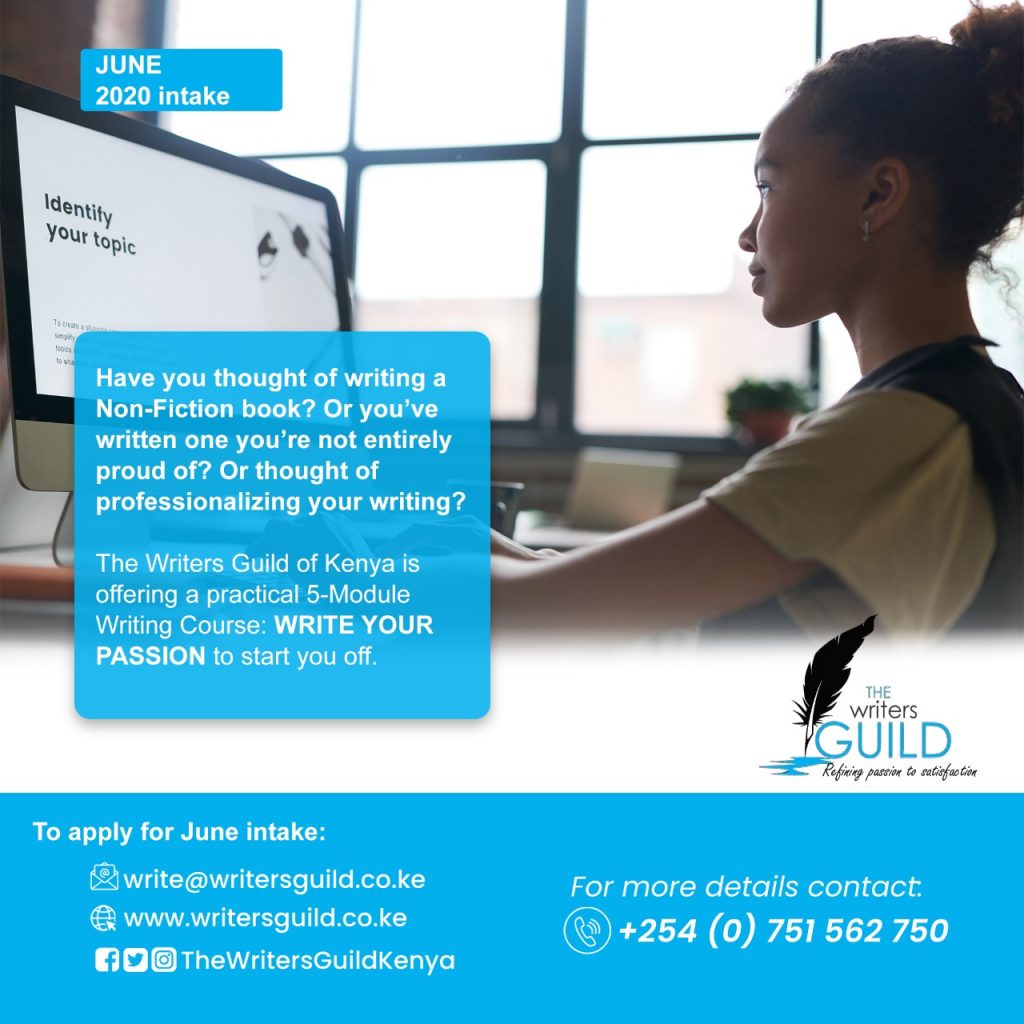The Subtle Art of Editing; Lessons from Lucas Wafula.
By Marion Jepkosgei.
Editing is the most underrated expertise in Kenya. Despite it being the cornerstone of writing, the relationship between writers and editors is a strained one. Editors are known for their brutal honesty, which in most cases, isn’t much welcome by writers. Today, Lucas Wafula, a highly experienced editor and former Head of Publishing at East African Educational Publishing limited, set editing straight for us.
Lesson 1: Edit your own work thoroughly before submitting to a professional editor
Lucas’ laughter enveloped us with warmth until he said editors aren’t your Facebook friends, but people who tell you the truth. This clearly is the point of conflict between writers and editors. He defined editing as reading and writing with an attitude. “Why do I need to edit my work anyway?” You are probably asking yourself this. Well, according to Lucas you edit to add value to your work. Lucas emphasized the need for every writer to be keen while writing, because unlike your Facebook friends, editors won’t hit the like button for work not well done. “Look at your work like an editor. Edit your work without mercy.” He advised.
Lesson 2: Keep it simple
Lucas likened writing to food preparation and presentation. He emphasized the fact that every story needs a carefully crafted plot. “Without conflict, there’s no story.” He also warned against the overuse of stylistic devices. “Its like when cooking fish, you just add enough salt and spices so as not to overpower the main meal.” This is a trap I fell into head first and I know you too have at some point fallen as well. “You should write a story that appeals to your senses such that your audience can smell, taste, hear, see and touch your characters.” This profound message really hit my chords right because he spoke these words of wisdom with a new surge and I hope you will catch the wave of proper writing.
Lesson 3: The first step to getting published
Lucas didn’t just bombard us with these new information. He briefly broke down the process your manuscript goes through. First, it is reviewed to assess if it is worth an editor’s time. If it is not, it is rejected undoubtedly. And if an editor identifies potential in you, he subjects your work to structural editing. This is where he slashes out grass and uproots weeds. It is at this point that your manuscript is pummeled back and forth. “You might find that page 17 of your manuscript has been moved to page 2 while page 1 has been pushed to page 156.” He recounts before asking if anyone has experienced something of that kind. A mate, Sharon, confessed to ever submitting an article for publishing and upon publishing, the only content that was hers was her name. Editing is that serious so you should brutally edit your work before sending it to a professional editor.
Lesson 4: Mental toughness
Like the other two teachers said, there’s a need for you to grow thick skin as a writer. This, as Lucas said is because you are going to face a lot of rejection and criticism. These two precede acceptance because before your work is accepted, you must endure the heat of the refinery. Pure gold doesn’t come that easily. Though we knew that our first teacher Dr Waweru was rejected seven times, this didn’t offer any consolation for us as our articles sat on the grill waiting for the second session.
Lesson 5: Write what you know
“The best stories are stories that are close to us.” I recalled every time an article was criticized. It was really hard to feel bad even when Lucas said you needed to find yourself. His laughter downplayed the criticism and I didn’t feel like I was standing before the headmaster anymore. As he continued “murdering” our articles, as William Dekker put it, the brutality we need to apply on our work started making sense. “Here is better than there,” was my day’s takeaway. It really confirmed that we need to write what we know. That way, our work resonates with the reader because authenticity is power.
Editing therefore is an essential part of writing and Lucas is an indicator that the future of editing is gleaming as software editing isn’t as efficient as the human eye. And so as you write, edit and proofread your work before checking it with a software. Editing your work retains your power and creativity.







2 thoughts on “The Subtle Art of Editing; Lessons from Lucas Wafula.”
Mr Lucas made it clear and by trashing our articles , he did with humanity and passion One factor changed my approach , write and edit your work , see it as a trash that has to be corrected , write your heart not imaginative thoughts . We shall confront it again this weekend .
Such an honest advice.
I like the way it is put